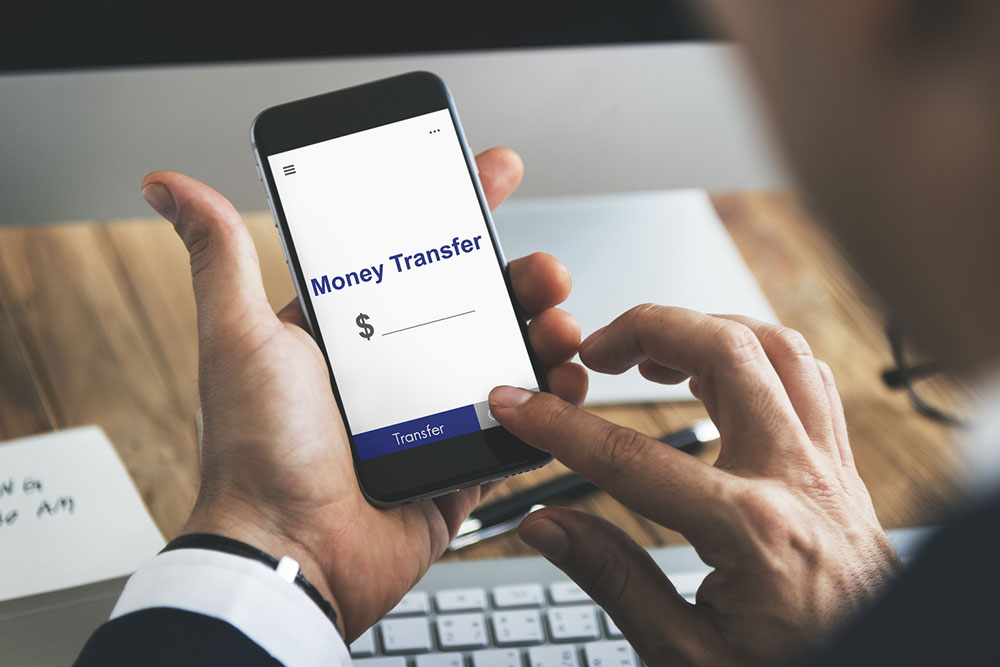
Money transfer – Types and selecting the right apps
The world today is a smaller place because of technological advancements. People can purchase goods and services internationally and seek reliable means to transfer funds, whether for personal transactions or business dealings. This is where one has to choose from a range of money transfer options. Based on convenience, users have the option to decide between online and offline money transfer modes. Both of these come with a set of benefits and restrictions.
Bank transfers
Bank transfers serve as the bedrock of financial transactions. This method involves electronically moving funds from one bank account to another. Within the country, bank transfers offer stability, security, and convenience. While traditional wire transfers have been the norm, advancements in technology have given rise to Automated Clearing House (ACH) transfers. ACH transfers are particularly popular for their cost-effectiveness and relatively quick processing times.
Online payment platforms
With the proliferation of e-commerce and online transactions, dedicated payment platforms have emerged as go-to solutions. Some services facilitate peer-to-peer transfers, enabling users to send money with just a few clicks. These platforms often link to bank accounts or credit cards, providing a seamless experience for users.
Mobile wallets
Mobile wallets have gained traction as a convenient and secure money transfer method. By storing payment information on a mobile device, users can swiftly send and receive money. Popular mobile wallet service provide users with the ability to make purchases in stores and online, and even transfer funds to other users.
Money orders
Money orders offer an alternative for individuals who prefer physical documentation of their transactions. These are prepaid instruments issued by financial institutions or post offices. While they may take longer to process compared to electronic methods, money orders are considered a secure way to transfer funds.
Peer-to-peer (P2P) lending platforms
P2P lending platforms like LendingClub and Prosper have gained popularity as a means to both borrow and lend money. These platforms connect borrowers directly with individual lenders, often providing better interest rates compared to traditional financial institutions. While these platforms are primarily used for lending and borrowing, they represent an innovative way to transfer funds between individuals.
In-person cash transfers
For those who prefer face-to-face interactions, cash transfers remain a viable option. Certain services have an extensive network of physical locations across the country, allowing individuals to send and receive money in cash. This method is particularly useful for recipients who may not have access to bank accounts or digital platforms.
When selecting a money transfer method, individuals should consider factors such as transaction fees, processing times, security measures, and the preferences of both the sender and recipient.
With a myriad of options available, each boasting unique features and functionalities, it’s imperative to consider several factors when making this choice. Read on to learn the intricacies of selecting the ideal money transfer app.
Fees and exchange rates
One of the foremost considerations when choosing a money transfer app is understanding the associated costs. Different apps may have varying fee structures, including transaction fees, currency conversion charges, and exchange rate margins. It’s imperative for users to compare these costs across different platforms to ensure they align with their budget and financial goals.
Security measures
Security is paramount when it comes to financial transactions. Reputable money transfer apps employ advanced encryption technologies to safeguard user data and financial information. Additionally, some apps offer enhanced security features such as multi-factor authentication and biometric verification. Prioritizing a platform with robust security measures provides peace of mind for users entrusting their funds.
Accessibility and user interface
The accessibility and user-friendliness of a money transfer app are pivotal factors for an optimal user experience. A well-designed app with an intuitive interface ensures seamless navigation and easy execution of transactions. It’s important for users to choose an app that aligns with their technological proficiency and preferences.
Speed of transactions
For many users, especially those requiring swift international transfers, the speed of transaction processing is of paramount importance. Some apps offer expedited transfers, often at an additional cost, while others may have standard processing times. Considering the urgency of transfers can guide users in selecting an app that meets their specific timeframes.
Integration with banking systems
Compatibility with existing banking systems is a critical factor for seamless fund transfers. Users should opt for money transfer apps that seamlessly integrate with their respective bank accounts. This ensures that transfers, including direct deposits and withdrawals, are executed without unnecessary complications or delays.
Range of supported currencies
For users engaged in international transactions, the availability of a wide range of supported currencies is essential. A comprehensive selection of currencies allows for more flexibility and cost-effective transfers. Users should verify that their chosen app supports the currencies relevant to their specific needs.
Customer support and reputation
Reliable customer support can be a saving grace in the event of any unforeseen issues or queries. Users should choose money transfer apps that offer accessible and responsive customer service channels, including phone support, live chat, and email. Additionally, researching the app’s reputation, including user reviews and ratings, provides valuable insights into its reliability and performance.



